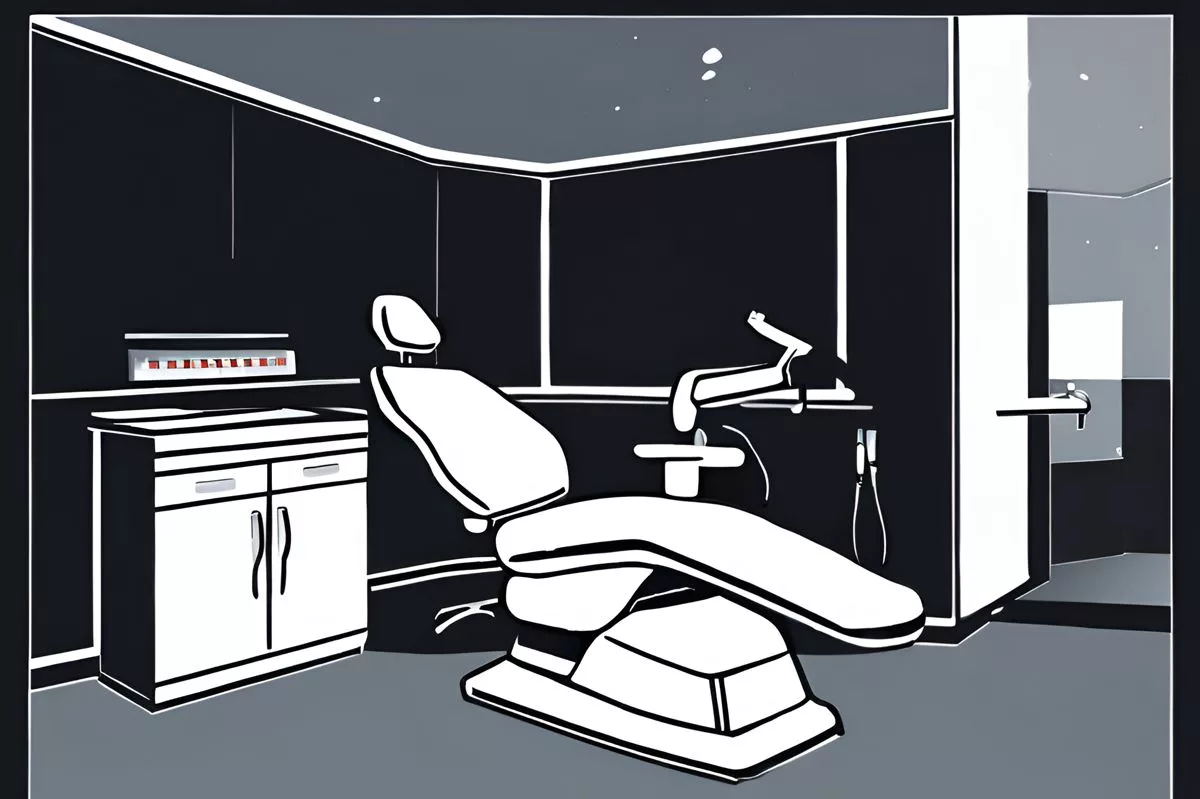Finding a state-supported dentist in the UK is becoming increasingly difficult, with less fortunate patients left with the choice of abandoning treatment or resorting to extreme, self-performed actions. The migration of dentists from the NHS to private practice has led to the lowest count of active NHS dentists in England in ten years, putting pressure on dental health services and leading to severe consequences for oral health. The UK is facing a critical dental health crisis that requires urgent investment and reforms, including addressing emergency dental care and publicly funded treatment.
The Dwindling Availability of State-Supported Dentists
Finding a state-supported dentist in the UK is becoming increasingly difficult, with less fortunate patients left with the grim choice of abandoning treatment or resorting to extreme, self-performed actions. The migration of dentists from the NHS to private practice has led to the lowest count of active NHS dentists in England in ten years, as revealed by the British Dental Association. This pressure on dental health services contradicts the NHS’s fundamental mission of providing healthcare at no cost or at a low cost, funded by general taxes and national insurance contributions.
The Dwindling Availability of State-Supported Dentists
The task of locating a state-supported dentist in the United Kingdom is increasingly becoming like searching for a needle in a haystack. This dire situation has forced those economically privileged to seek services from the private sector, while the less fortunate are left with the grim choice of either abandoning treatment or resorting to extreme, self-performed actions. The migration of dentists from the National Health Service (NHS) to explore more lucrative private practice openings has escalated to a level where the count of active NHS dentists in England is at its lowest in ten years, as revealed by the British Dental Association (BDA).
Ashley Dalton, a Labour MP, pointedly illustrated the precarious state of affairs by joking that getting Taylor Swift tickets in 2024 would be an easier task than securing an NHS dental appointment. This pressure on dental health services contradicts the NHS’s fundamental mission of providing healthcare at no cost or, at the very least, at a low cost, funded by general taxes and national insurance contributions.
Deteriorating Dental Care Accessibility
A YouGov poll conducted in March of the previous year underscored the harsh truth that one in five UK residents failed in their attempts to register with an NHS or private dentist. This dire scenario is epitomized by the predicament of Danny White, who has been battling to secure a dentist for his family, including his wife who battles recurrent abscesses, and his two daughters. White’s predicament represents the “absolute nightmare” that many UK citizens are encountering, with dental practices ceasing to accept NHS patients and only offering private care.
The ramifications of this dental care deficit are far-reaching and astonishing. Tales are rampant of individuals travelling hundreds of miles to locate a dentist, sinking into debt to afford treatment, or even journeying overseas for basic dental procedures. Some desperate individuals have turned to unthinkable alternatives such as self-dentistry kits purchased from Amazon or, in severe cases, removing their own teeth with tools like pliers.
Dentist Shortage and its Impact
According to OECD data, the UK boasts only 49 dentists per 100,000 residents, the lowest ratio amongst G7 nations. The issue, Mark Jones, founder of the “Toothless in England” campaign group points out, is not a dentist shortfall but rather a lack of dentists choosing to serve in the NHS.
The Nuffield Trust health think tank has alerted that the NHS dental services are “nearly at a terminal stage,” with a two-tier system gradually taking shape: one for those who can afford to seek and pay for treatment, and another for those who cannot, leading to the degradation of their oral health. This stratification has already triggered severe repercussions, with the Oral Health Foundation charity reporting that more than 3,000 people in England succumbed to mouth cancer in 2021, a 46 percent increase over a period of ten years.
Investment and Reforms Required
BDA president Eddie Crouch has dubbed the predicament “quite appalling in a civilised country” and directed blame at the lack of investment over the past decade, which has necessitated patients to shell out more for NHS treatments. A backlog resulting from treatments cancelled during the coronavirus outbreak and a 2006 reform changing remuneration for dental procedures have further aggravated the problem.
Despite these sombre conditions, the Conservative government, which has held power since 2010, vows to introduce a plan for publicly funded dental treatment. Nevertheless, emergency dental care also needs to be addressed, as pointed out by Jones, with potential solutions including the deployment of mobile clinics and the provision of hospital outpatient treatment.
As it stands, the UK is at a turning point, grappling with the challenges brought by a critical dental health crisis. The route it opts to follow will significantly impact the oral health of its citizens for several years to come.
What is the current situation with NHS dental care in the UK?
Finding a state-supported dentist in the UK is becoming increasingly difficult, with less fortunate patients left with the choice of abandoning treatment or resorting to extreme, self-performed actions. The migration of dentists from the NHS to private practice has led to the lowest count of active NHS dentists in England in ten years, putting pressure on dental health services and leading to severe consequences for oral health.
Why is there a dwindling availability of state-supported dentists in the UK?
The migration of dentists from the NHS to private practice has led to the lowest count of active NHS dentists in England in ten years, as revealed by the British Dental Association. This pressure on dental health services contradicts the NHS’s fundamental mission of providing healthcare at no cost or at a low cost, funded by general taxes and national insurance contributions.
What are the consequences of deteriorating dental care accessibility in the UK?
The ramifications of this dental care deficit are far-reaching and astonishing. Tales are rampant of individuals travelling hundreds of miles to locate a dentist, sinking into debt to afford treatment, or even journeying overseas for basic dental procedures. Some desperate individuals have turned to unthinkable alternatives such as self-dentistry kits purchased from Amazon or, in severe cases, removing their own teeth with tools like pliers.
How severe is the dental health crisis in the UK?
According to OECD data, the UK boasts only 49 dentists per 100,000 residents, the lowest ratio amongst G7 nations. The issue, Mark Jones, founder of the “Toothless in England” campaign group points out, is not a dentist shortfall but rather a lack of dentists choosing to serve in the NHS. The Nuffield Trust health think tank has alerted that the NHS dental services are “nearly at a terminal stage,” with a two-tier system gradually taking shape: one for those who can afford to seek and pay for treatment, and another for those who cannot, leading to the degradation of their oral health.
What is the cause of the current situation with NHS dental care in the UK?
BDA president Eddie Crouch has dubbed the predicament “quite appalling in a civilised country” and directed blame at the lack of investment over the past decade, which has necessitated patients to shell out more for NHS treatments. A backlog resulting from treatments cancelled during the coronavirus outbreak and a 2006 reform changing remuneration for dental procedures have further aggravated the problem.
What solutions are being proposed to address the NHS dental care crisis in the UK?
Despite these sombre conditions, the Conservative government, which has held power since 2010, vows to introduce a plan for publicly funded dental treatment. Nevertheless, emergency dental care also needs to be addressed, as pointed out by Jones, with potential solutions including the deployment of mobile clinics and the provision of hospital outpatient treatment.








